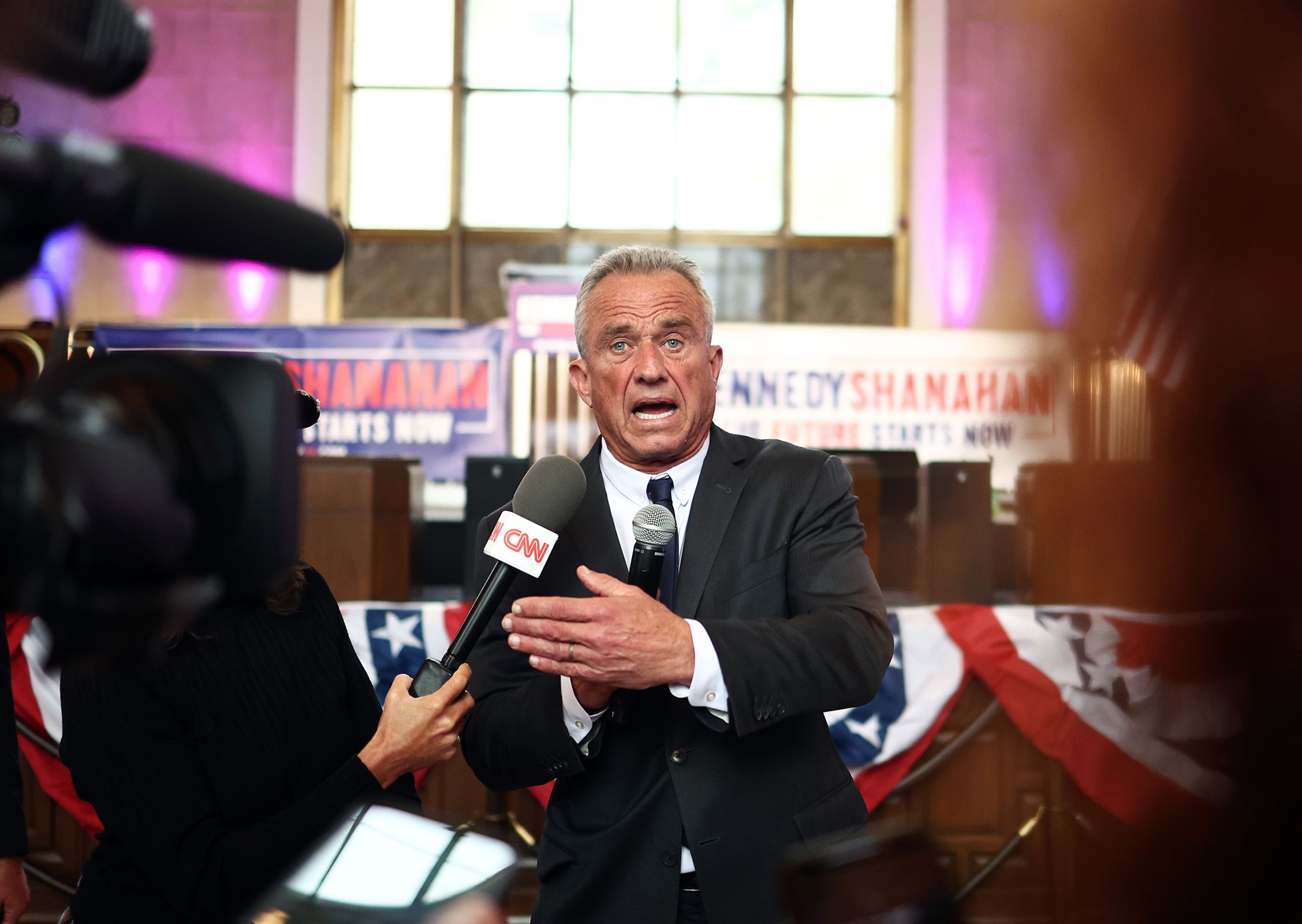As ex-President Donald Trump makes his first return to Wisconsin in nearly two years, Democrats are keeping a close watch on him and the potential impact of third-party candidates on the upcoming general election in this crucial swing state.
During a recent episode of “The Devil’s Advocate Radio Show,” progressive host Mike Crute posed a question to his listeners: “Would you consider voting for a third party?” This question is becoming increasingly relevant as voters cast their ballots in a largely symbolic primary seven months ahead of the November election.
Democrats and Republicans alike are preparing for a potential rematch between President Joe Biden and Trump. However, the independent candidacy of Robert Kennedy Jr. is emerging as a potential wild card in the race. Crute warned his audience against voting for third-party candidates, stating, “Don’t throw away your vote.”
Wisconsin’s recent electoral history underscores the potential impact of third-party candidates. In 2020, Biden won the state by fewer than 21,000 votes, with no Green Party candidates on the ballot. In contrast, Trump won Wisconsin by nearly 23,000 votes in 2016, when Green Party candidate Jill Stein garnered more than 30,000 votes.
Stein, Kennedy, and left-wing scholar Cornel West are presenting themselves as alternatives for voters dissatisfied with the prospect of choosing between Biden and Trump. Crute expressed concern over the potential impact of these third-party candidates on the electoral math between Trump and Biden.
In a recent interview on CNN’s “Erin Burnett OutFront,” Kennedy dismissed concerns about potentially spoiling the election for Trump. He argued that neither Biden nor Trump will address his policy priorities, such as reducing the national debt and the defense budget.
As Kennedy works to qualify for the presidential ballot in states across the country, his Wisconsin supporters are organizing a summertime push to gather the 2,000 signatures needed for ballot inclusion – a significantly lower threshold than many other states.
Phil Anderson, a longtime Wisconsin Libertarian supporting Kennedy’s candidacy, believes the widespread dissatisfaction with a potential Biden-Trump rematch creates a greater opportunity for a third-party candidacy. Brian Schimming, chairman of the Wisconsin Republican Party, also acknowledged the potential impact of third-party candidates, but suggested they pose a greater threat to Biden than to Trump.
As the Democratic National Committee challenges Kennedy’s candidacy, Democratic leaders in Wisconsin recognize the uncertainty third-party candidates can introduce. Kelda Roys, a Democratic state senator from Madison, emphasized the importance of not underestimating the potential impact of third-party candidates, citing Hillary Clinton’s loss in 2016 as a stark reminder.
As the election draws closer, the impact of third-party candidates remains uncertain. However, their potential to disrupt the electoral math between Trump and Biden is a growing concern for both Democrats and Republicans in Wisconsin.

